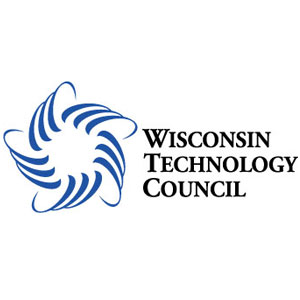The top 13 finalists in this year’s Wisconsin Governor’s Business Plan Contest are developing diverse startup ideas ranging from a cancer care decision-making tool to advanced components for next-generation electronics.
These and other ideas were highlighted yesterday during the Wisconsin Entrepreneurs’ Conference, hosted in Milwaukee by the Wisconsin Technology Council. Company founders each had about 7 minutes to present to an audience of their colleagues, potential investors and other attendees.
The winner of the contest will be announced today at the end of the two-day conference. Finalists include:
*Chocolate Rescue for Dogs, a Germantown company with an interventional treatment for dogs that have eaten potentially dangerous amounts of chocolate. Amadeus Benitez, the company’s CEO and co-founder, said a recent animal trial found no symptoms of chocolate poisoning among the dogs on which it was tested.
The business has raised $150,000 in an angel investment round, and plans to continue raising funds to expand marketing and fund further research and development.
*Empower2Retain, an Eau Claire business with an app designed to help make workplaces more inclusive. CEO Emily Elsner Twesme said that despite the competitive landscape for products like this, the app can foster a sense of belonging and help employers retain workers.
“We really focus on content, that’s the place where we really shine,” she said. “This content focuses on relationship building and organically integrating that … into the work that people are already doing.”
*Energy Tech Innovations, a Milwaukee company with technology for processing biogas into renewable natural gas. Company President Bryan Johnson, an experienced biogas engineer, said the product’s efficacy has been demonstrated at multiple wastewater treatment plants in the area. The company is seeking $250,000 from investors.
*FASTMedical, a Beloit business with a software screening tool for residents of assisted living facilities. Owner, CEO and registered nurse Lauren Davis said no standardized assessment tool currently exists for this market.
“This tool will provide equity amongst all patients, as well as financial transparency in the assisted living market,” she said.
*Flux XII, a Madison company with a new battery system aimed at supporting more wind and solar energy being added to the grid. Founder Patrick Sullivan said the technology behind this battery would provide greater energy density and efficiency than currently available options.
The company is raising a $2 million pre-seed funding round, he said, with a goal of launching a large-scale pilot project in the next few years.
*Graceful Management Systems, a Madison company led by CEO Tommy Stanek. This company’s project management system aims to address common issues between contractors and their customers, such as delays and overcharging.
By using a machine learning system, the platform reduces the need for manual data entry and becomes more sophisticated over time, he said.
*Gud Medical, a Winneconne business with an ergonomic medical device meant for syringe applications. CEO and co-founder Joseph Ulbrich says the ErgoExact-50 device can reduce the impacts of strenuous, repetitive IV bag preparation while helping ensure more accurate, sterile dosing. The company aims to launch its product in the Midwest early 2024, and is seeking $1.4 million from investors to support that plan.
*Home Perks Network, a Madison company with a subscription platform for connecting homeowners with skilled professionals to complete basic services and provide education on home repair. The business is seeking $350,000 in funding to hire staff, purchase equipment and conduct testing.
*IQDecide, a Madison company with a system for balancing the risks of cancer treatment with the potential benefits. Company leader Victor Fernandes says the business aims to reduce the subjectivity involved with cancer care using artificial intelligence, backed by years of development and $5 million in research grants.
“It eases the cognitive burden in the clinic, so it allows oncologists and patients to arrive at better decisions, faster,” he said.
*RoseTech Creativity Center, a Marshfield nonprofit providing educational resources on high-tech fields for young students. It aims to translate complex topics like AI, 3D printing, virtual reality and computer programming into accessible content for kids.
“There’s more to technology than just pop culture, and K-6 students need to know about advanced technology to thrive in tomorrow’s world,” CEO Tia Bertz said.
*SixLine Semiconductor, a Middleton business that’s working with tiny materials called carbon nanotubes to develop components for advanced electronics. Katy Jinkins is the company’s founder and inventor of this technology.
“Carbon nanotubes … are 50,000 times thinner than a human hair, promise to outperform the current materials that are used, and drive this next generation of wirelessly connected devices,” she said.
*Soul Mobility, an Oconomowoc business developing technology that can integrate with users’ wheelchairs to enable power-driven operation alongside traditional manual use. Its sales strategy involves targeting Veterans Affairs rehabilitation centers as potential customers. Troy Tesmer, co-founder and president, said the business is seeking $1.5 million from investors.
*WorkShift, a West Allis company that aims to connect restaurants and hospitality businesses with employees in the industry. Founder Bekki Yang said the platform offers individual profiles for skilled workers, scheduling and payment services.
“We are more than just a gig app,” she said. “Part of our goal is to create a clearer pathway for college students and those individuals looking to enter restaurants and hospitality through WorkShift.”
–By Alex Moe






